calsfoundation@cals.org
Mamie Katherine Phipps Clark (1917–1983)
Hot Springs (Garland County) native Mamie Phipps Clark was the first African American woman to earn a Doctor of Philosophy degree in psychology from Columbia University. The research she did with her husband was important in the success of the 1954 case Brown v. Board of Education of Topeka, Kansas, in which the United States Supreme Court declared the segregation doctrine of “separate but equal” with regard to education to be unconstitutional on account of such separation generating “a feeling of inferiority as to their status in the community” on the part of Black students.
Mamie Phipps was born on October 18, 1917, in Hot Springs to British West Indies native Harold H. Phipps, a physician, and Kate Florence Phipps, who assisted in his practice. Phipps’s only sibling, her younger brother, Harold, became a dentist.
Phipps attended a segregated public elementary school and the segregated Langston High School, graduating in 1934 and winning scholarships to Fisk University in Nashville, Tennessee, and Howard University in Washington DC. She elected to attend Howard to study mathematics and physics, departments that were not particularly supportive of her as a student, possibly due to prejudices against women entering such fields at the time.
While at Howard, Phipps met Kenneth B. Clark, a master’s student in psychology born in the Panama Canal Zone. Kenneth Clark, who had studied under Arkansas native Francis Cecil Sumner, influenced Phipps to switch to psychology. Phipps and Kenneth eloped during her senior year in 1937 and later had two children: Kate in 1940 and Hilton in 1943. She received her BA in psychology in 1938, graduating with honors, magna cum laude, and earned a graduate fellowship to enter Howard’s master’s degree program in psychology. She worked that summer as a secretary in the law office of William Houston. There, she witnessed and was deeply impressed by the work of William Hastie, Thurgood Marshall, and other legal activists in preparing civil rights cases that would ultimately culminate in the 1954 Brown decision.
Her master’s thesis, “The Development of Consciousness in Negro Pre-School Children,” completed in 1939, entailed an experiment which demonstrated that young Black children, when presented with identical dolls—one Black and one white—preferred the white doll over the Black doll. The major findings were that Black children “became aware of their racial identity at about age three, and—simultaneously with their awareness of racial identity—acquired a negative self image.” This pioneering “research into the importance of self in black children, completed fifteen years before the Brown decision, paved the way for an increase in psychological research into the areas of self-esteem and self-concept,” according to Women in Psychology: A Bio-Bibliographic Sourcebook (1990). Her research is regarded as an important step in opening areas of inquiry in the evolution of developmental psychology. (This research later influenced the creation of the Saralee doll, the first mass-produced doll representing a Black child, which debuted in 1951.)
Clark and her husband received a three-year grant from the Julius Rosenwald Fellowship program in 1939 to pursue research on racial identification in Black children, from which three articles were published. Clark entered the PhD program in psychology at Columbia University that year. The only Black student in the department, Clark was sponsored by Dr. Henry Garrett who, she would later write, was “not by any means a liberal on racial matters,” as he did not believe the public schools should be desegregated. She completed her PhD in 1943, and the title of her dissertation was “Changes in Primary Mental Abilities with Age.”
Employment opportunities were practically non-existent, and Clark concluded “that a black female with a Ph.D. in psychology was an unwanted anomaly in New York City in the early 1940s.” She found it “heartbreaking to learn that a number of white men and women with far less qualifications were hired at relatively high salaries.” She held two jobs from 1944 to 1946—analyzing data about nurses for the American Public Health Association (a position she called “humiliating”) and as research psychologist with the United States Armed Forces Institute.
In 1946, she took a position as psychologist with the Riverdale Home for Children, “a private agency for the protection of black, homeless girls.” She found the work very rewarding but discovered that there was a severe lack of psychological services for minority children, many of whom were incorrectly identified as “Children of Retarded Mental Development” by the New York public schools. Unable to persuade directors of social agencies serving Harlem to provide psychological services for children, that same year, Clark and her husband opened the Northside Testing and Consultation Center, later called the Northside Center for Child Development, where they made important contributions to the understanding and treating the problems of minority children. The center was the first full-time institution in the Harlem area that offered psychological and casework services to local families. The work carried out there helped to establish that the problems of minority children are psycho-social in nature and that “orthodox psychoanalytically-oriented psychiatric treatment is not necessarily the most effective way of helping families whose massive problems are associated with living in a ghetto.” Clark served as executive director of the center from 1946 to 1979.
In 1958, Minnijean Brown, one of the Little Rock Nine, moved to New York and lived with the Clarks after being suspended and then expelled for retaliating against the daily torment she experienced at Central High School during its desegregation.
Clark served on the boards of trustees of Teachers’ College, Columbia University, Mount Sinai Medical Center, the New York Mission Society, the New York Public Library, the Phelps Stokes Fund, the Museum of Modern Art, the American Broadcasting Company (ABC), and on advisory groups for non-profit agencies. Her career focused attention on the particular problems faced by minority youth, and her work ushered in new approaches to treatment and remains a landmark in the history of psychology.
Mamie Clark died on August 11, 1983, at her home in New York City. She was posthumously inducted into the Arkansas Black Hall of Fame in 2024.
For additional information:
Abbott, Shirley. “Mamie Phipps Clark, a Hot Springs Woman Who ‘overcame the odds.’” The Record 47 (2006): 15–22.
Goodfriend, Wind, Amber L. Garcia, and Meara M. Habashi. “Dr. Mamie Phipps Clark: First African American Woman to Earn a PhD in Psychology from Columbia University.” In Early Psychological Research Contributions from Women of Color, edited by Jon E. Grahe, Michelle L. Ceynar, and Rihana Shiri Mason. New York: Routledge, 2023.
Markowitz, Gerald, and David Rosner. Children, Race, and Power: Kenneth and Mamie Clark’s Northside Center. Charlottesville: University Press of Virginia, 1996.
McGregor, Loretta N. “Mamie Katherine Phipps Clark (1917–1983): American Psychologist and Arkansas Native.” In Arkansas Women: Their Lives and Times, edited by Cherisse Jones-Branch and Gary T. Edwards. Athens: University of Georgia Press, 2018.
O’Connell, Agnes N., and Nancy Felipe Russo, eds. Models of Achievement: Reflections of Eminent Women in Psychology. New York: Columbia University Press, 1983.
Smith, Andrea Harris. “Being the Only One Leaves a Mark: A Black Mother on the Long Shadow of School Segregation.” The Guardian, February 21, 2023. https://www.theguardian.com/education/2023/feb/20/us-school-segregation-race-integration (accessed February 21, 2023).
Spofford, Tim. “Dr. Mamie Phipps Clark: Hot Springs Hero Long Overlooked.” The Record (2023): 6.1–6.12.
———. What the Children Told Us: The Untold Story of the Famous “Doll Test” and the Black Psychologists Who Changed the World. Naperville, IL: Sourcebooks, 2022.
Tussman, Joseph, ed. The Supreme Court on Racial Discrimination. New York: Oxford University Press, 1963.
Warren, Wini. Black Women Scientists in the United States. Bloomington: Indiana University Press, 1999.
Stephen N. Butler
Earlham College



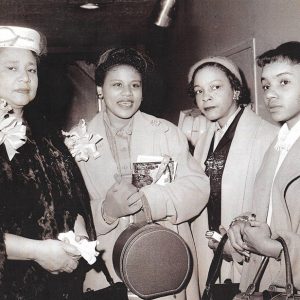
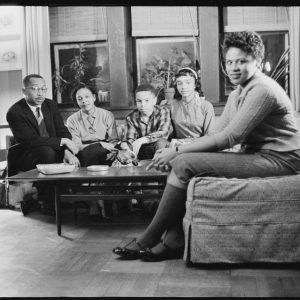
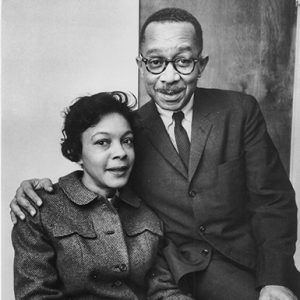
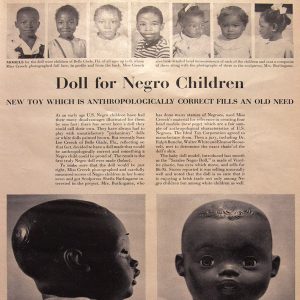
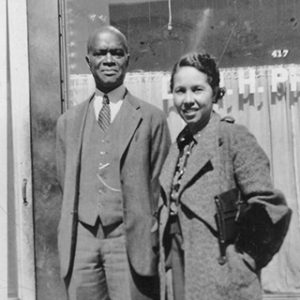




AMAZING lady! I have been working in the healthcare industry providing care to patients for fifty years. As an African American family nurse practitioner, I am very proud of and appreciate her excellent work.